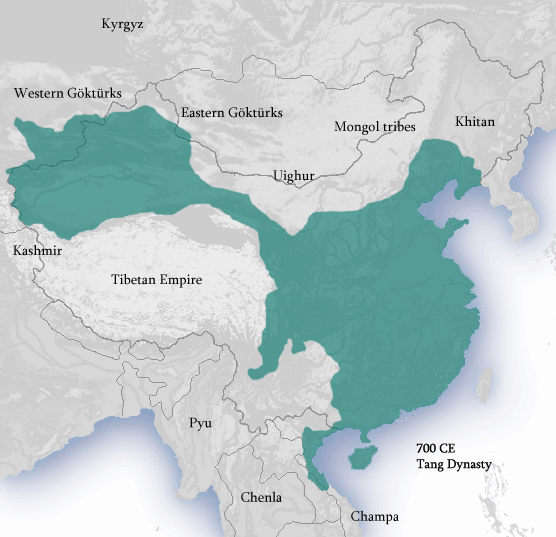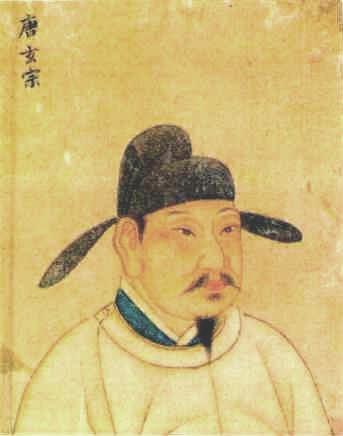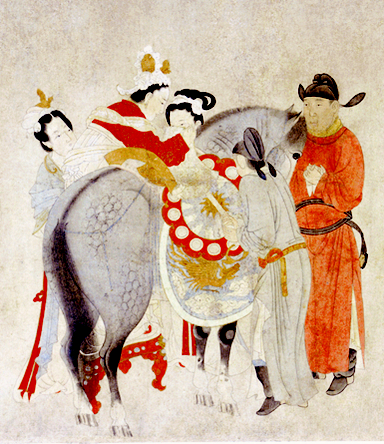by Eve Fisher
Back when I was first studying Chinese history, I kept running across two men who together wrote books that were almost impossible to obtain (pre-internet days), but were one of the primary references for many, many other books, especially textbooks:
- J.O.P. Bland and Edmund Backhouse (1910). China Under the Empress Dowager: Being the History of the Life and Times of Tzŭ Hsi
- J.O.P. Bland and Edmund Backhouse (1914). Annals & memoirs of the court of Peking: (from the 16th to the 20th century
- J.O.P. Bland and Edmund Backhouse (1913). "Secret Annals of the Manchu Court 1. The Story of the Precious Pearl"
These memorialized the life of the Empress Dowager, Tzu Hsi (now spelled Cixi - 1835-1908), and the Manchu Court during her reign (1861-1908), a life of total power, decadence, curious ceremonies and customs, and fairly constant murder. Fascinating. Obsessive to those who read them back in the 1910s, because China was a closed country to almost everyone. There were very few non-Chinese who could actually speak and read the Chinese language, and of those who could, most were eccentric British. One of the most eccentric was Sir Edmund Backhouse (1873-1944).
Backhouse was one of those who was a failure at home, but a roaring success in China. Fleeing to China after a nervous breakdown at Oxford, he learned Chinese and became a translator for (London) Times correspondent George Morrison. Morrison had been sent to report on a country whose language he didn't know. (This happened more often than one might think, especially back then.) This meant that Backhouse could feed Morrison pretty much anything he wanted about the Court and the Dowager Empress, especially if it was negative.
NOTE: No one in Britain really wanted China to have a strong ruler, for the simple reason that after winning the two Opium Wars, Britain had China in a vise. The Treaty of Tientsin forced the Chinese government agreed to pay war reparations, open almost all ports to European commerce, legalize the opium trade, and grant foreign traders and missionaries rights to travel within China. It also gave the British the right to preside over the Chinese Customs Office (i.e., taxes and tariffs). The British got the first slice of all that money, which meant a tidy profit, and no one wanted that to stop.
SECOND NOTE: The British had long been propagandized about how primitive, barbaric, and decadent the Chinese, with their sophisticated 3,000+ years of culture, language, and civilization, were. After all, it excused ramming opium down their throats, and taking all the land, power and money they could grab. Some of the other foreign translators contributed to the propaganda, most notably Karl Gutzlaff (See my old SleuthSayers article "The Drug Smuggling Missionary of the Pearl River"), whose writings and later speeches back in London (attended by Karl Marx) showed how desperately the Chinese needed missionaries and help.
Backhouse, who claimed to know many influential people in the Forbidden City, provided the Times with a Dowager Empress who was "a woman and an Oriental... on the one hand... imperious, manipulative, and lascivious" and on the other "ingenuous, politically shrewd, and conscientious." And a lot of emphasis was put on the imperious. For example, in The Secret Annals as the Dowager Empress and the Guanxu Emperor fled the palace during the Boxer Rebellion, the Emperor begs to have his favorite concubine, Precious Pearl, come with them, but the Dowager Empress has the eunuchs throw her down a well.
NOTE: There is no proof that this ever happened. In fact, it's much more likely that it was Backhouse's retelling of the classic poem The Song of Everlasting Sorrow about the Tang Dynasty Consort Yang Guifei, forced to commit suicide by the Imperial Guard for her cousin's leadership of the An Lushan Rebellion. One of the most famous star-crossed lovers stories in Chinese history, Yang Guifei's story has been told over the centuries as poetry, operas, plays, films, television series, and even a video game.
But we cannot forget the lascivious, either. Backhouse's Empress had plenty of sex, and not just with other Chinese but with supposedly Backhouse. In China under the Empress Dowager, Backhouse claimed she called him to the Forbidden Palace for sex "between 150 and 200 times.” You will, I hope, not be surprised that it was thoroughly debunked, and its major source, the Diary of His Excellency Ching-Shan, was proved to be a Backhouse forgery. Sadly, that did not happen for fifty years, and Cixi's reputation was a muddy swamp in Western eyes and historiography.
He was also a conman. In 1916 he presented himself as a representative of the Imperial Court and negotiated two fraudulent deals with the American Bank Note Company and John Brown & Company, a British shipbuilder. Neither company received any confirmation from the Imperial Court. When they tried to contact Backhouse, he had left the country. After he returned to Peking in 1922 he refused to speak about the deals, and nothing apparently ever happened to him. (Wikipedia)
By WW2, he'd become actively fascist, collaborated with the Japanese occupation, and hoped for an Axis victory. Sadly, he died before he could discover how poorly he had chosen sides.Forgery, fraud, fascist: so why did his name keep coming up in the bibliographies and notes?
Happy to share space with Steve Liskow, Joseph S. Walker, John M. Floyd, Jim Winter and many more!
Also, coming soon, my latest story, "Lady With a Past" in Black Cat Mystery Weekly Issue #167!
"We’re back in Laskin, South Dakota, where police officer Grant Tripp is involved with the sexiest, most beautiful woman he’s ever known. But Megan’s a Davison, an ex-con is stalking her, and her ex-boyfriend wants Grant out of the picture. And then there’s the question of where she got so much money…"






















